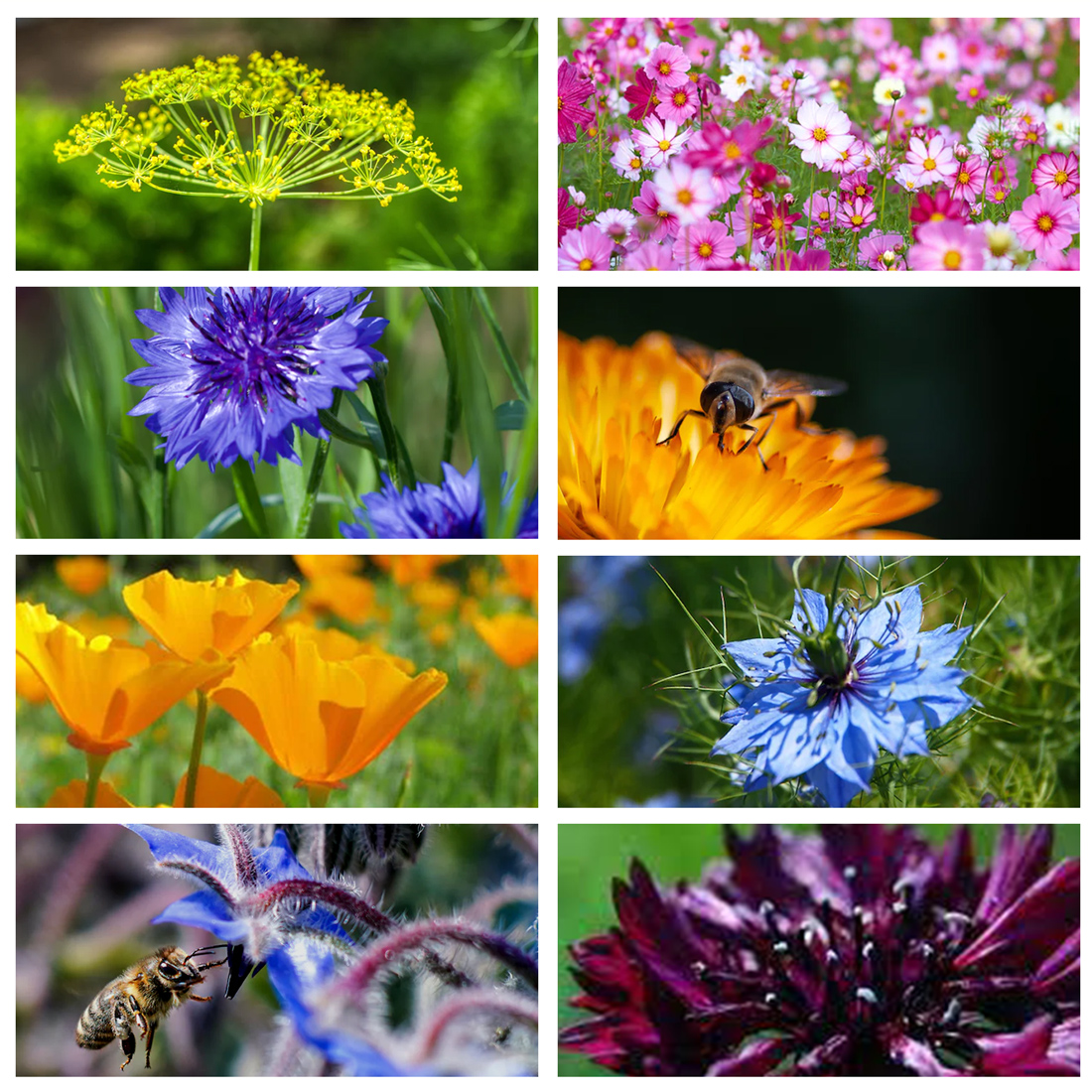It’s so easy to feel overwhelmed in the face of multiple threats to both wild and honeybees, but there are many things we can do to help. Mowing the lawn less often (to allow ‘weed’ flowers), avoiding pesticide use, providing water as well as nest sites in messy corners and bee boxes, planting trees and shrubs that bloom throughout the growing season and sowing bee-friendly seeds with the open, nectar rich flowers so crucial to supporting our pollinators – all these actions add up.
Research has shown that private gardens in cities and towns are now the biggest source of food for pollinating insects, providing greater diversity than farmland or nature reserves.
Each border, each pot and hanging basket, each window box, each allotment bed – we want to make it easy to encourage and feed our bees, to enhance and beautify our gardens and to help in simple ways. Our Brumblebee seed mix doesn’t need indoor heat or space-consuming individual modules – and can be sown in prepared allotment or garden beds, amongst existing herbaceous perennials or into pots.
Brought to you by Lupin Gardening Ltd and beesplease.org. Enjoy the bees they bring you — every one is precious.

Sowing Guide
Bee-friendly and highly rewarding, these hardy annuals are best in a sunny spot. Sow directly into the soil after mid-April (though if the soil is still cold and wet, delay a little longer), or in late August/September for flowering the following year.
Weed soil thoroughly, rake over and water gently. Sprinkle seeds thinly, cover very lightly with compost or garden soil, and wait; seedlings should emerge in 2 to 4 weeks. Keep weeding — and thinning if necessary — and water lightly, harvesting the flowers to ensure that they continue producing.
Please Note: Available to UK customers only, excluding Northern Ireland.
